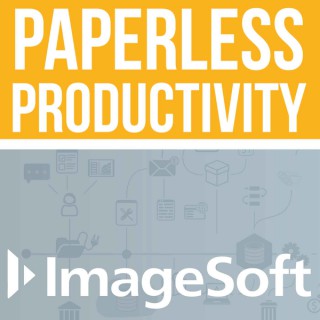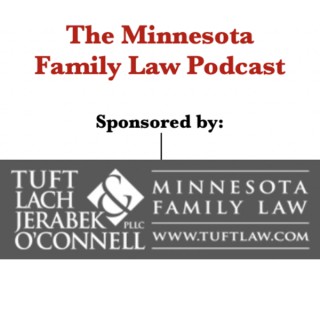Podcasts about online dispute resolution odr
- 9PODCASTS
- 12EPISODES
- 39mAVG DURATION
- ?INFREQUENT EPISODES
- Apr 10, 2025LATEST
POPULARITY
Best podcasts about online dispute resolution odr
Latest news about online dispute resolution odr
- NPST to provide Online Dispute Resolution solution to DCB Bank Industry-Economic Times - Feb 29, 2024
- ONDC September Round-Up: AI, grievance redressal, financial services, Google, exports, and more MediaNama - Sep 30, 2023
- ODR Is No Overnight Sensation Slaw - Dec 6, 2022
Latest podcast episodes about online dispute resolution odr
From Courtrooms to Computers: ODR Lessons from Massachusetts Trial Court
In this episode of "Scaling Justice," we explore the transformative world of Online Dispute Resolution (ODR) with insights from the Massachusetts Trial Court. Discover how technology is revolutionizing the legal landscape by making justice more accessible and efficient. Our expert guest, Caitlin Reddy, Deputy Chief Information Officer for eCourts at Massachusetts Trial Court, shares her experience and lessons learned from implementing ODR. She highlights the challenges and successes of moving from traditional courtrooms to digital platforms. Join us as we explore the future of justice and the innovative solutions that are breaking down barriers and taking us from courtrooms to computers.
062: Online Dispute Resolution is The Future of Mediation: A Conversation With Susan Guthrie, Esq.
Everyone has been spending a lot more time online these days, with many companies going permanently remote or adopting a hybrid model. As tricky as it can be to learn new technologies, you can't deny that online services have made life far more convenient. One of the fastest growing digital solutions is Online Dispute Resolution (ODR), a virtual method of mediation. Thanks to ODR, mediation is more accessible and affordable than ever, and settlements are reached in a fraction of the time. Listen in to the ImageSoft team's in-depth conversation with acclaimed online mediator, Susan Guthrie, Esq. Guthrie has worked in family law for many years, and has recently found a passion for helping other mediators move to the online platform. She is also well-known for her innovative and cutting edge Learn to Mediate podcast. Hear about Guthrie's history in the mediation space, her favorite things about ODR, and how she conquers technical difficulties when they arise.
Dialling Up Online Dispute Resolution & Young Entrepreneurship in India: with Pranjal Sinha of SAMA
Join us as we take a look into Online Dispute Resolution (ODR) in India. How to get started, niche applications etc. We also explore the effect of the recent COVID 19 pandemic on ODR and whether it has been a blessing in disguise. The role of ODR in expanding access to justice and on whom exactly such a burden rests are also put to question.
Re-Release: Nuts & Bolts of Online Dispute Resolution (ODR) with Colin Rule
Resolutions: A Podcast About Dispute Resolution and Prevention
In this second installment, Colin Rule shares his insights on online dispute resolution’s (ODR’s) growth in the last decade, during the COVID19 pandemic, and future applications in collaboration with artificial intelligence, bitcoin, and smart contracts. Of note, Colin was awarded the inaugural 2020 Frank E.A. Sander Award by the ABA Center for Innovation in conjunction with this Section. Tune in to learn more about Colin and his work! Note: Since the episode’s recording, Colin joined Mediate.com as its President and CEO. We wish him well on his new adventure.
Practicing in a Pandemic: Loretta Frederick Discusses the Rising Incidence of Intimate Partner Violence
Loretta Frederick, Senior Legal Policy Adviser to the Battered Women's Justice Project, joins Tom to discuss the incidence of intimate partner violence (IPV) during the stay-at-home periods of the pandemic. She points out that those who were previously living with coercive controlling domestic violence are even more entrapped in these dangerous situations. This is especially alarming in Minnesota with the significant increase in purchases of firearms by first-time gun owners. She highlights the new tactics used by abusers, for example, where an abuser may withhold a child from an essential worker-parent on the pretext that the essential worker may endanger the child through exposure to COVID-19. She addresses the challenges survivors face in fleeing to a safe house that may expose the survivors own family and the host family to COVID-19. She discusses the challenges in rural areas that had relied upon hotels to temporarily shelter survivors when those hotels are now closed. All of this compounded when shelters are full and staff and other supports are not available. Further, survivors do not have access to libraries or coffee shops where they may have accessed help through the internet. The supports they need to get to safety are largely unavailable. There is the additional concern that children are exposed to more abuse than they were. School counselors, nurses, neighbors, clergy, doctors are all no longer in regular contact with survivors and their children. Options for survivors like independence through housing, employment, support services, and the courts have been less accessible or even not available during the heart of the quarantine. She discusses the challenges of Online Dispute Resolution (ODR) and court trials via videoconferencing. For example, what if the abuser and survivor are in the same location during videoconferences? She posits the possibility of entering into temporary, pandemic-related settlements lasting perhaps six months so that a more thoughtful solution can be devised once the pandemic has abated. This is one way to try to limit the long-term negative implications of the pandemic. The video she references is available at bwjp.org.
This week's episode picks up, right where we left off from last week--Professor Davis explores some of the specific aspects of Online Dispute Resolution ("ODR"), predictions for the future of international business and law and shares a list of steps for anyone looking to break into international dispute resolution, in particular arbitration. It's a lengthy episode, but you're in for a treat, enjoy! SHOW NOTES: ARTICLE from Prof. Davis: Pathological Clauses: Frédéric Eisemann's Still Vital CriteriaMUSIC:- Intl. Arbitration Theme Music (Brahams 1st Symphony, 4th Movement)- Artists: Earth, Wind and Fire; Grateful Dead; Kool and the Gang; and Steely DanTV/MOVIE: Some show called "Game of Thrones"
Nuts & Bolts of Online Dispute Resolution (ODR) with Colin Rule
Resolutions: A Podcast About Dispute Resolution and Prevention
In this second installment, Colin Rule shares his insights on online dispute resolution’s (ODR’s) growth in the last decade, during the COVID19 pandemic, and future applications in collaboration with artificial intelligence, bitcoin, and smart contracts. Of note, Colin was awarded the inaugural 2019 Frank E.A. Sander Award by the ABA Center for Innovation in conduction with this Section. Tune in to learn more about Colin and his work! Part 1: https://soundcloud.com/resolutionspod/colin-rule-a-conversation-about-online-dispute-resolution
Online Dispute Resolution (ODR) is coming to the Ninth Circuit. On this episode of Open Ninth, Chief Judge Don Myers talks to mediator Christy Foley and ODR software specialist Jamie Gillespie about traditional mediation and the shift to ODR. Using mediation, the disputing parties may avoid going to court. Using ODR, those parties can access the mediation process and discuss their case anywhere, at any time, at their convenience. Let us know what you think about the podcast.
Susan Guthrie: The Mechanics of Online Dispute Resolution (ODR) & Building Your Legal Brand
Resolutions: A Podcast About Dispute Resolution and Prevention
Susan Guthrie, an online divorce mediation specialist, discusses her family law practice, “Divorce in a Better Way”. Innovation emboldens this dialogue, with topics including the new wave of online dispute resolution (ODR), with an offering of useful platforms to keep mediation both amicable and outside of the court, and diversifying your legal brand through use of social media and podcasts (spoiler alert: Susan leads two podcast, That Got Me Thinking and Breaking Free: A Modern Divorce Podcast, and a retreat, Best You Ever (B.Y.E.)). Susan also serves as Co-Chair of the Section's Mediation Committee and Co-Chair of the Planning Committee for the Annual Advanced Mediation and Advocacy Skills Institute. Divorce in a Better Way - https://divorceinabetterway.com
Episode 3 is double the fun as we have a double interview episode with discussions delving into the world of technology and law. In Addis Ababa, I talked to Rashida Abdulai about the potential of technology in the legal field, Artificial Intelligence etc… In Arusha, I talked to Madeline Kimei about Online Dispute Resolution (ODR) and the impact of technology on how and where arbitration disputes will be held in the future. Guests: Rasheeda Abdullai, Chief Executive Officer, Strand Sahara. She previously practiced International Arbitration at Hogan Lovells. Madeline Kimei, Founder, iResolve. She is a practicing lawyer in Tanzania and represents clients on different matters including arbitration. Music: Ellias Fullmore; Editing: Tinsae Teferi; Host: Leyou Tameru
Colin Rule - Hearsay Culture Show #8, KZSU-FM (Stanford)
A talk show on KZSU-FM, Stanford, 90.1 FM, hosted by Center for Internet & Society Resident Fellow David S. Levine. The show includes guests and focuses on the intersection of technology and society. How is our world impacted by the great technological changes taking place? Each week, a different sphere is explored. This week, David interviews eBay's Director of Online Dispute Resolution (ODR) and CIS Fellow Colin Rule about dispute resolution at eBay and the broader world of ODR.
Online Dispute Resolution, Democracy and the EBay Experience
As people around the world increasingly interact with each other in cyberspace it is inevitable that disputes will arise. If the internet is to become a trusted environment for both commerce and content, individuals and organizations must have access to redress systems to resolve their online disputes. In the face-to-face world we rely on the courts to address disagreements, but courts are not well designed to handle online disputes because judicial systems are usually too tied to geography and jurisdiction. Online Dispute Resolution (ODR) is a better solution for many online conflicts because it is effective, efficient, and trans-boundary by nature. As an organization pioneering the creation of online marketplaces eBay has long acknowledged the need for effective online redress, and that is why eBay and PayPal have invested heavily in ODR processes and partnerships. The work done by eBay in this area offers a blueprint for how other institutions, especially public institutions, can provide redress systems as they steadily move their operations online.












